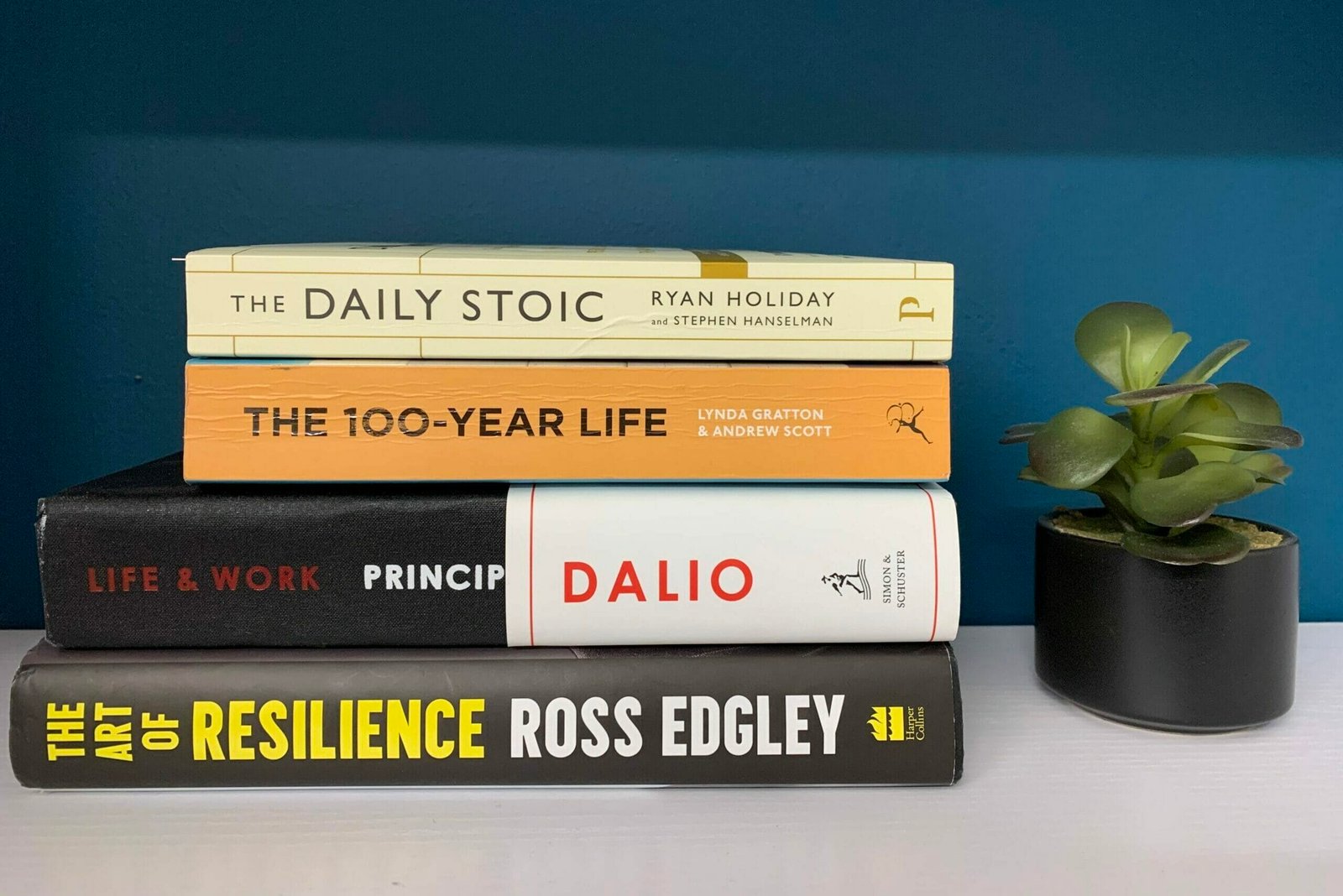Throughout the course of a year, I can read anywhere between 10 and 25 books. I read them all for pleasure but some add additional value to my professional life as well. From the many I have read this year these four standout as especially interesting, useful and thought-provoking.
Art of Ressiliance by Ross Edgely
Bestselling author and award-winning adventurer Ross Edgley has been studying the art of resilience for years, applying all he has learned to become the first person in history to swim around Great Britain, breaking multiple world records. Here Ross focuses on mental strength, stoicism and the training needed to create an unbreakable body.
I found this a book I simply could not put down, desperate to find out what came next on this daring and incredible journey. I have no doubt I will re-read this again this year as I reflect on exciting challeneges (not quite so daring I must say!) that I have in mind for myself.
The Changing World Order by Ray Dalio
A few years ago, renowned investor Ray Dalio began noticing a confluence of political and economic conditions he hadn’t encountered before in his fifty-year career. They included large debts and zero or near-zero interest rates in the world’s three major reserve currencies; significant wealth, political, and values divisions within countries; and emerging conflict between a rising world power (China) and the existing one (US). Seeking to explain the cause-effect relationships behind these conditions, he began a study of analogous historical times and discovered that such combinations of conditions were characteristic of periods of transition, such as the years between 1930 and 1945, in which wealth and power shifted in ways that reshaped the world order. Looking back across five hundred years of history and nine major empires—including the Dutch, the British, and the American—The Changing World Order puts into perspective the cycles and forces that have driven the successes and failures of all the world’s major countries throughout history. Dalioreveals the timeless and universal dynamics that were behind these shifts, while also offering practical principles for policymakers, business leaders, investors, and others operating in this environment.
Certainly a more dry read but for someone is interested in history, who spends thier day thinking about investing and is responsible for the future hopes and dreams of 100s of clients it was a fabulous read. Ray has cerealised the book online prior to release and invited though, response and critic prior to putting it on general sale and it was a real joy to be part of that process, seeing how one of the 21st Centuary’s great investors thinks and works in real time.
(The photo is of another of his books which I also highly recomend as The Changing World Order has not yet been printed)
The Daily Stoic by Ryan Holiday and Stephen Hanselman
I love this book. A small daily meditation on wisdom, perseverance and the art of living with quotations from Marcus Aurelius, Seneca, Epictetus. Someitmes the insights are interesting, other times challenging but it always brings a little something to my day and gives a useful insight.
Reading this throgh the pandemic has been highly valuabl and whilst it is not as indepth as other books of philosophy I have enjoyed over the years it is perfect for a little dip every day and to give the mind something to reflect over.
Probably one I will return to every few years.
The 100-Year life
The 100-Year Life is written by psychologist Lynda Gratton and economist Andrew Scott. Together, they argue that people are living longer and that this increased longevity will impact us, our companies, and our government in several specific ways: People will continue working into their 70s and 80s. They will transition between jobs many different times during their lives, which will mean that they will also need to educate themselves continuously.
Increased longevity will inevitably mean changes in the workplace and in the government, but change will be slow, though I suspect some of this change has been expedited due to COVID-19. The biggest insight from the book is probably how important self-reflecting and a holistic view of wealth will be over and above simply your balance sheet.
Psychology of Money by Morgan Housel
In the psychology of money, the Morgan Housel shares 19 short stories exploring the strange ways people think about money and teaches you how to make better sense of one of life’s most important matters. As a Financial Planner I am all too aware that none of us think purely logically about money. We have quirks and foibles, thoght patterns and behaviors that impact the way we spend, save and enjoy money.
These short stories are interesting, insighful and it was a simple and enjoyable read. No doubt you’ll hear me referencing some of these stories over the coming year in meetings, blogs and our newsletter.
Recomendations:
If you have read any great books this year or ever that you think I should be reading then please let me know! Drop me a message on LinkedIn or Twitter




